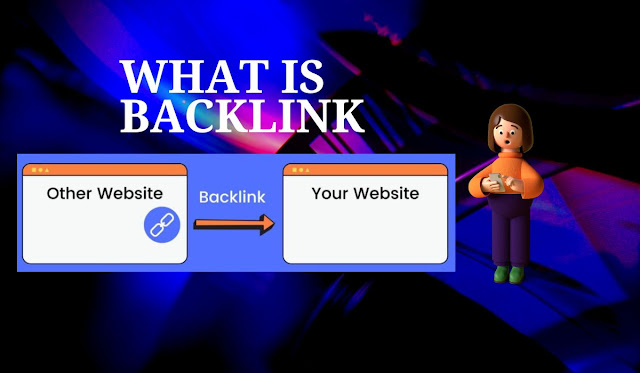In the realm of search engine optimization (SEO), backlinks play a pivotal role in determining a website’s authority and ranking in search engine results. Understanding what backlinks are and how to build high-quality ones can significantly impact your SEO efforts and overall digital marketing strategy. This article explores what backlinks are and provides actionable strategies for creating quality backlinks.
What is a Backlink?
A backlink, also known as an inbound or incoming link, is a hyperlink from one website to another. When a website links to your site, it is considered a backlink. Backlinks are crucial because they act as endorsements or votes of confidence from other sites, signaling to search engines that your content is valuable and trustworthy.
Why Are Backlinks Important?
Search Engine Ranking: Backlinks are a major ranking factor for search engines like Google. High-quality backlinks from reputable sites can improve your site’s authority and help it rank higher in search engine results pages (SERPs).
Referral Traffic: Backlinks drive referral traffic from other websites. When users click on a link to your site from another page, it can lead to increased visibility and potential conversions.
Credibility and Trustworthiness: Quality backlinks from authoritative sources enhance your site’s credibility and trustworthiness. They signal to search engines and users that your content is valuable and relevant.
How to Create Quality Backlinks
Creating quality backlinks involves strategic planning and execution. Here are some effective methods for building high-quality backlinks:
1. Create High-Quality Content
Producing valuable, informative, and engaging content is the foundation of a successful backlink strategy. High-quality content naturally attracts backlinks from other sites. Focus on creating content that solves problems, answers questions, or provides unique insights.
- Research-Driven Content: Develop content based on thorough research and data analysis.
- In-Depth Guides and Tutorials: Create comprehensive resources that offer detailed information on a specific topic.
- Infographics and Visual Content: Design visually appealing infographics that simplify complex information.
2. Guest Blogging
Guest blogging involves writing articles for other reputable websites in your industry. In return, you receive a backlink to your site within the content or author bio.
- Identify Relevant Blogs: Look for high-authority blogs that accept guest posts and align with your niche.
- Pitch Valuable Topics: Propose topics that offer value to the blog’s audience and demonstrate your expertise.
- Include Natural Links: Ensure that your backlinks are relevant and naturally integrated into the content.
3. Leverage Social Media
Social media platforms can be powerful tools for generating backlinks and driving traffic to your site.
- Share Your Content: Promote your content on social media channels to increase its visibility and encourage sharing.
- Engage with Influencers: Connect with industry influencers and encourage them to share or link to your content.
- Participate in Industry Groups: Join relevant social media groups and forums where you can share valuable insights and link to your content.
4. Build Relationships with Industry Influencers
Forming relationships with influencers and thought leaders in your industry can lead to valuable backlink opportunities.
- Reach Out to Influencers: Contact influencers and offer to collaborate on content or projects.
- Provide Value: Offer value through insightful content, exclusive resources, or mutual promotion.
- Request Mentions or Links: Politely request backlinks from influencers who find your content valuable.
5. Conduct Broken Link Building
Broken link building involves finding broken or dead links on other websites and suggesting your content as a replacement.
- Identify Broken Links: Use tools like Screaming Frog or Ahrefs to find broken links on relevant websites.
- Create Relevant Content: Develop content that serves as a suitable replacement for the broken link.
- Reach Out to Webmasters: Contact the site owners or webmasters and offer your content as a replacement for the broken link.
6. Submit to Industry Directories
Submitting your website to reputable industry directories can provide valuable backlinks and improve your online visibility.
- Find Relevant Directories: Look for high-quality directories related to your industry or niche.
- Ensure Directory Quality: Avoid low-quality or spammy directories that could harm your SEO efforts.
- Complete Your Profile: Provide accurate and complete information when submitting your site to directories.
7. Utilize Resource Pages
Resource pages are web pages that list valuable resources or links on a specific topic. Getting listed on these pages can result in high-quality backlinks.
- Search for Resource Pages: Use search queries to find resource pages in your industry (e.g., "best resources for [topic]").
- Reach Out with Value: Contact the page owners and suggest your content as a valuable addition to their list.
Best Practices for Building Quality Backlinks
Focus on Relevance: Ensure that your backlinks come from websites that are relevant to your industry or niche. Relevant backlinks are more valuable and contribute to better SEO outcomes.
Prioritize Authority: Aim for backlinks from authoritative and high-quality sites. Backlinks from well-respected sites carry more weight and can significantly impact your rankings.
Avoid Spammy Tactics: Steer clear of unethical practices such as buying backlinks or participating in link schemes. These tactics can lead to penalties and damage your site’s reputation.
Diversify Your Backlink Profile: Build a diverse range of backlinks from various sources, including guest posts, social media, and directories, to create a natural and balanced link profile.
Conclusion
Backlinks are a vital component of SEO that influence search engine rankings, referral traffic, and online credibility. By creating high-quality content, leveraging guest blogging, utilizing social media, and building relationships with influencers, you can generate valuable backlinks that enhance your site's authority and performance. Focus on ethical and effective backlink-building strategies to achieve long-term SEO success and improve your website's visibility in search engine results.







0 Comments